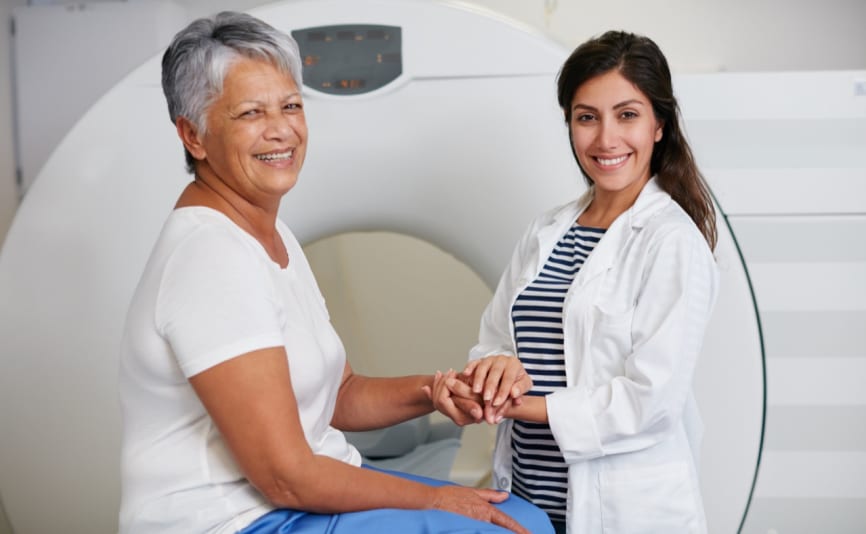MRI can accurately detect and localise "deep" endometriosis
Endometriosis is a chronic and sometimes painful disease, which is a common health problem affecting women.
Book a scan near you

Endometriosis is a chronic and sometimes painful disease, which is a common health problem affecting women.

If you think you need a scan but don't know where to start, talk to our expert clinical team for advice on your options.
Book a consultation call with our clinicians for expert scan advice for just £50. Plus, you'll get a no-obligation referral if imaging is recommended.
Read about consultations
Learn why an MRI scan is important in getting a diagnosis of Parkinson’s, what the disease is and what the treatment options are.

An MRI scan can be hugely helpful in getting a diagnosis for Sacroiliitis, which can help you manage your symptoms effectively.

Learn the symptoms of uterine cancer and how ultrasound helps detect early changes, plus what to expect from diagnosis, causes, stages and treatment.

MRI scans are used to diagnose a range of health conditions. Here is our useful guide to what to do and what not to do before a scan.
Our consultations are fast, affordable, and tailored to you. With free cancellation and no obligation to book a scan, it's never been easier to get the answers you need on your terms.
Book now
Not sure if you need a scan? Talk to our clinicians for expert advice.